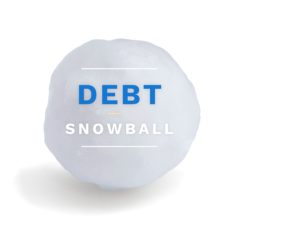
Written by Brent J. Welch, CFP®, ChFC, CRPS®, CLU, AIF®
The message of the Bible seems clear; we should “Let no debt remain outstanding, except the continuing debt to love one another...” (Rom. 13:8). Sometimes we need to borrow money to buy a home or to finance a business or to purchase investment properties. The Bible also talks about loaning money out to those in need. So what is it? So should we have debt or not? How about purchasing a home? I have only had one client in 36 years who saved up enough money in the bank to purchase a home with cash. Most people save carefully for a home down payment and then borrow the rest from a bank.
Mortgages are common in America. To borrow money at a low interest rate and pay it back with inflated dollars makes financial sense. What do I mean by inflated dollars? Well, if inflation averages 3%, then your dollars today will be worth fifty cents in 24 years. Using the “rule of 72”, you divide 72 by the interest rate to get the number of years it takes to double your money. The same would be true in reverse; 72 divided by the inflation rate equals the number of years to cut your purchasing power in half. (72 divided by 3% equals 24 years.)
Ok, so we borrow money sometimes. Maybe there is good debt and there is bad debt. Bad debt is using money we don’t have to buy things we don’t need in order to impress people we don’t like. However, what if good debt is borrowed money against an appreciating asset? Then it would be acceptable to borrow money to purchase a home, to start a business or to buy investment real estate.
You can talk to any business owner and they may tell you how much they hate debt. Debt takes away money for profits or dividends or future investments. Debt is necessary some times and may not be avoided. Let’s say you faced a life-threatening illness and you needed to borrow money against your home to live another day? Wouldn’t you borrow money to stay alive? I would think so. Or maybe you need to borrow money against one profitable real estate project to purchase another one that came up for sale. I believe that opportunity sometimes knocks when we don’t expect it. We may want to take action through a loan.
If that happens, hardship hits or opportunity knocks and we end up with debt, how do we get rid of it? After all, debts that run out of control can force us into bankruptcy. As Benjamin Franklin said, “Beware of little expenses. A small leak will sink a great ship.” One of the best ideas for debt elimination is called a Debt Snowball and has been made famous by Dave Ramsey.
The Debt Snowball is a strategy that eliminates your smallest debt and then applies that payment to the next smallest debt until you are totally debt free. The reason you start with the smallest debt is to have an emotional win sooner for positive reinforcement. You need to have some encouragement early as a reward for forming new habits. Making smart choices with your money includes a debt payoff plan.
For example, let’s say you had three debts; a $5,000 credit card debt paying $50 per month, a $10,000 car loan paying $200 per month and a $20,000 student loan paying $200 per month. By starting with the smallest debt, the credit card and paying an extra $200 per month, this debt will be paid off in less than two years. Once paid off, you should celebrate! Then take the extra $250 per month that you were paying on the credit card to apply to your car loan to pay it off early. Once your car is paid off, throw yourself a party! Finally, apply the $250 payment that was used for the credit card, plus the $200 for your car loan and add it to the $200 per month you are paying on your student loan. By stepping up your student loan payments to $650 per month, you will be shaving over $7,000 to $8,000 per year off your student loan!
The Debt Snowball can help turn your feeling of drowning in debt to an actual plan to be debt free in possibly three to six years. Be debt free one step at a time through a Debt Snowball today!
Contact the author at 1-800-TAX-PLAN
